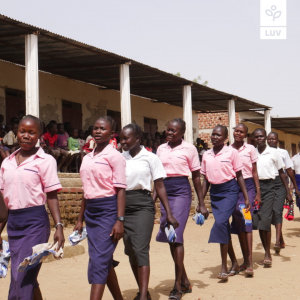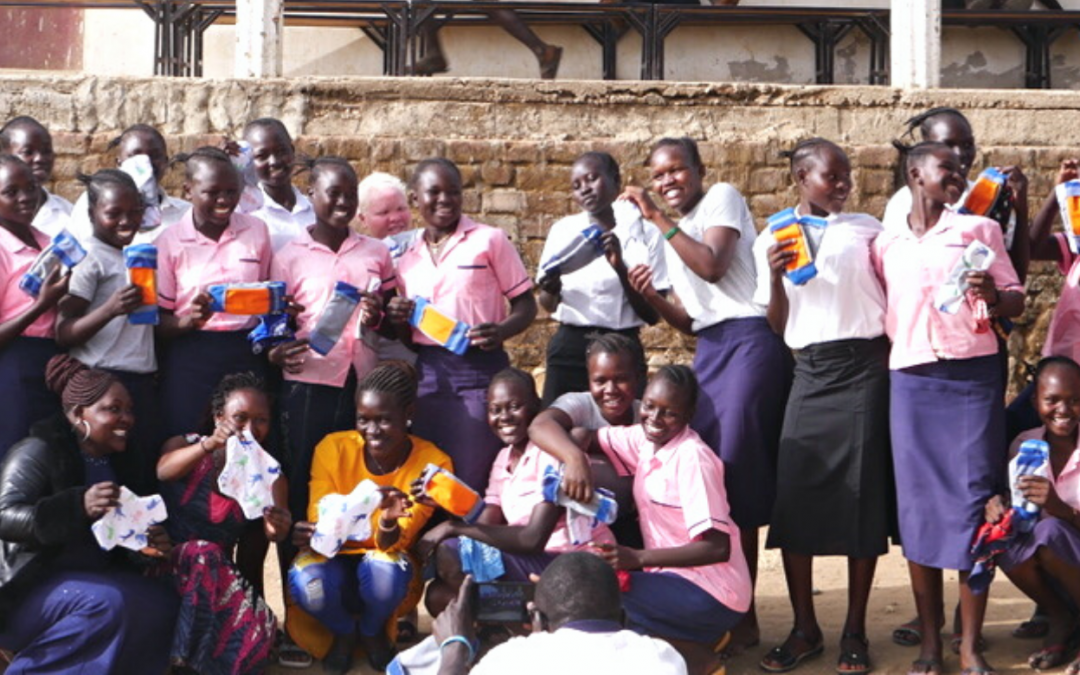At LUV, we are unafraid to ask hard questions.
Like how can we best support young women in our programs who need expensive and scarce menstrual hygiene products?
On my last day in Sudan, I had a chance to experience the answer to this question.
Jane Mutua, LUV’s Thrive Coordinator, trained the young ladies at Our Father’s Cleft (OFC) on how to make reusable sanitary pads out of local materials. I was invited to a “small” celebration to honor the girls who graduated from this weeklong program; I soon saw it was anything but small.
In the rural and war-torn regions LUV serves, gender inequality, cultural taboos, and poverty make it so menstrual hygiene products are inaccessible. This limits a female’s ability to participate in school and community activities, compromises safety, and lowers self-confidence. (https://www.unicef.org/wash/menstrual-hygiene)
Without access to proper health and hygiene, menstruation makes females even more vulnerable.
When the day of the “small” celebration arrived, I experienced the joy that holistic care brings.
 Jane led a line of young women to parade in front of the entire school and staff of OFC, who were watching intently, while Jane encouraged the young women to proudly wave their newly-made reusable sanitary pad kits in the air.
Jane led a line of young women to parade in front of the entire school and staff of OFC, who were watching intently, while Jane encouraged the young women to proudly wave their newly-made reusable sanitary pad kits in the air.
Their faces glowed, and their heads were held high. They sang and laughed deeply. It was the delight seen in someone when hope is restored. With the kits in their hands, they felt pride and satisfaction in a job well done. They understood that they were the owners of new skills that must be shared with their mothers, sisters, and daughters and would prevent countless unnecessary deaths and illnesses in their communities.
Speeches were given by the leaders of OFC, praising the young women for becoming “changemakers” for their families and local villages. Jane boldly stated in her speech that discussing this topic was not a taboo, but, on the contrary, it is a lifesaving act that will empower coming generations of Nuban women and bring greater independence and freedom for the region. She received a rousing round of applause after that line!
The two-hour-long event also included student groups who sang songs, performed choreographed dances, and even a ritual wrestling match. When the formal event ended, a bull was eaten and more cheerful dancing took place.
These practical, simple trainings are now offered to all locations in our anti-trafficking network and bring dignity to the graduates all over Sudan and South Sudan. It will enable them to continue their educational journey uninterrupted, take away dependency, lower the number of female dropouts, and prevent more child marriages.
May 28 is Menstrual Hygiene Day, and we are working to break taboos, prevent human trafficking, and empower young women with the tools for dignity and generational change.
